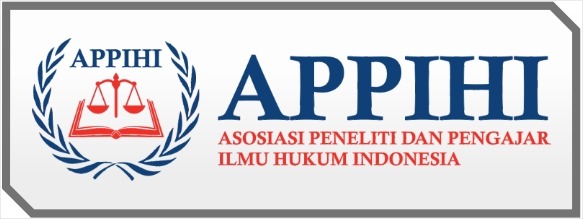The Appeal for People's Power: Legal Perspectives In The 2019 Presidential And Vice-Presidential General Elections
DOI:
https://doi.org/10.61194/law.v1i2.75Keywords:
Call for People Power, Freedom of Expression, SeditionAbstract
On April 17, 2019, Indonesia conducted a simultaneous general election involving five ballots for various political offices. The objective was to reduce election costs and improve efficiency. Despite a well-established electoral system, certain political elites contested the results using calls for 'people power.' This research aims to examine the legal implications of such calls and their compatibility with the law. Using a normative approach and legal behavior case studies, this study utilizes primary data from laws and secondary sources, such as books on democracy and freedom of expression. The theoretical contribution lies in clarifying that freedom of expression should not be considered seditious, as sedition entails efforts to overthrow the government. However, if demonstrators violate regulations, particularly Article 6 of the Freedom of Expression Law, it may be considered sedition. It is recommended to handle the results of the presidential and vice-presidential elections maturely by entrusting them to the competent authority, the Constitutional Court.
References
Cleary, J., & Hogan, A. (2016). Localism and decision-making in regional Australia: The power of people like us. Journal of Rural Studies, 48, 33–40. https://doi.org/10.1016/j.jrurstud.2016.09.008
Copus, C., & Dadd, M. (2014). “It’s a proper job”: process, people and power in an English city. Public Money and Management, 34(5), 323–330. https://doi.org/10.1080/09540962.2014.945797
Geelan, T. (2022). The combustible mix of coalitional and discursive power: British trade unions, social media and the People’s Assembly Against Austerity. New Technology, Work and Employment, 37(2), 161–184. https://doi.org/10.1111/ntwe.12236
Geenen, S., Powers, L. E., Phillips, L. A., Nelson, M., McKenna, J., Winges-Yanez, N., Blanchette, L., Croskey, A., Dalton, L. D., Salazar, A., & Swank, P. (2015). Better Futures: a Randomized Field Test of a Model for Supporting Young People in Foster Care with Mental Health Challenges to Participate in Higher Education. Journal of Behavioral Health Services and Research, 42(2), 150–171. https://doi.org/10.1007/s11414-014-9451-6
Hagelskamp, C., Su, C., Valverde Viesca, K., & Núñez, T. (2022). Organizing a transnational solidarity for social change through participatory practices: The case of People Powered–Global Hub for Participatory Democracy. American Journal of Community Psychology, 69(3–4), 294–305. https://doi.org/10.1002/ajcp.12593
Millar, G. (2018). Co-opting Authority and Privatizing Force in Rural Africa: Ensuring Corporate Power over Land and People. Rural Sociology, 83(4), 749–771. https://doi.org/10.1111/ruso.12203
Ricknell, E. (2020). Freedom of expression and alternatives for internet governance: prospects and pitfalls. Media and Communication, 8(4), 110–120. https://doi.org/10.17645/mac.v8i4.3299
State power and trans-border people in China’s Himalayan borderlands: a study of the Taman people in Kyirong valley, Tibet Autonomous Region. (2022). Asian Anthropology, 21(2), 121–137. https://doi.org/10.1080/1683478X.2022.2065005
Väliverronen, E., & Saikkonen, S. (2021). Freedom of Expression Challenged: Scientists’ Perspectives on Hidden Forms of Suppression and Self-censorship. Science Technology and Human Values, 46(6), 1172–1200. https://doi.org/10.1177/0162243920978303
Yeboah-Assiamah, E. (2016). Power to the People! How far has the Power Gone to the People? A Qualitative Assessment of Decentralization Practice in Ghana. Journal of Asian and African Studies, 51(6), 683–699. https://doi.org/10.1177/0021909614555349
Amani Lubis (2011), Social-Political Changes in the Middle East. Foreign Journal of Changes in the Middle East and Africa.. ISSN 0215-1235.
Arendt Lijphart, (1999), Patter Of Democracy; Goverment Forms And Performance, In Thirty – Six Countries, New Haven And London; Yale University Press.
Article 1, Paragraph 3 of Law Number 9 of 1998 Concerning Freedom of Expression in Public
Article 74 (2) of Law No. 24 of 2003 regulates the Constitutional Court and states:
Article 77, paragraph (4) of Law No. 24 of 2003 regarding the Constitutional Court stipulates
Azed, Abdul Bari, (2001), Percikan Pemikiran Tentang Hukum dan Demokrasi, Jakarta, Pusat Kajian Hukum Tata Negara, Fakultas Hukum Universitas Indonesia.
----------------, (2005) Pemilu Dan Partai Politik Di Indonesia, Pusat Studi Hukum Tata Negara Fakultas Hukum Indonesia, Jakarta.
B.N., Marbun, (2004), DPR-RI: Pertumbuhan dan Cara Kerjanya 1945-2004, Jakarta, Sekretariat Jenderal DPR-RI.
Budiarjo, Miriam, (1985) The quoted text is derived from: Patterns of Majoritarian and Consensus Government in Twenty-One Countries, New Haven: Yale University Press.
Chazawi, Adami, (2002), Kejahatan Terhadap Keamanan dan Keselamatan Negara, Jakarta, Rajagrafindo Persada.
https://M.cnnindonsia.com/nasional/tahun Political Affairs and Heightened Tensions, accessed on September 2, 2023, at 13:29.
https://m.liputan6.compilpres, accessed on September 2, 2023, at 13:35.
Https://Sulut.Kpu.Go.Id/Detailpost/Pemilu-Serentak-Tahun-2019--Dinamiika, Uploaded on September 18, 2019, at 05:00 AM
Manan, Bagir & Magnar, Kuntana, (1993), Beberapa Masalah Hukum Tata Negara Indonesia, Bandung, Alumni.
Pena, Mani Thess Q., (2001), People Power, In a Ragime of Cosntitualinism And The Of Rule of Law Philipine Law Journal Vol. 76, No. 1, p. 19.
Rahayu, (2010) Hukum Hak Asasi Manusia, Semarang, Universitas Diponegoro.
Sulisworo, Dwi., Wahyuningsih, Tri., Arif, Dikdik Baehaqi, (2012) Bahan Ajar, Hibah Materi Pembelajaran Non Konvesioanal, 2012.
Downloads
Published
Issue
Section
License
Copyright (c) 2023 Sinergi International Journal of Law

This work is licensed under a Creative Commons Attribution 4.0 International License.






